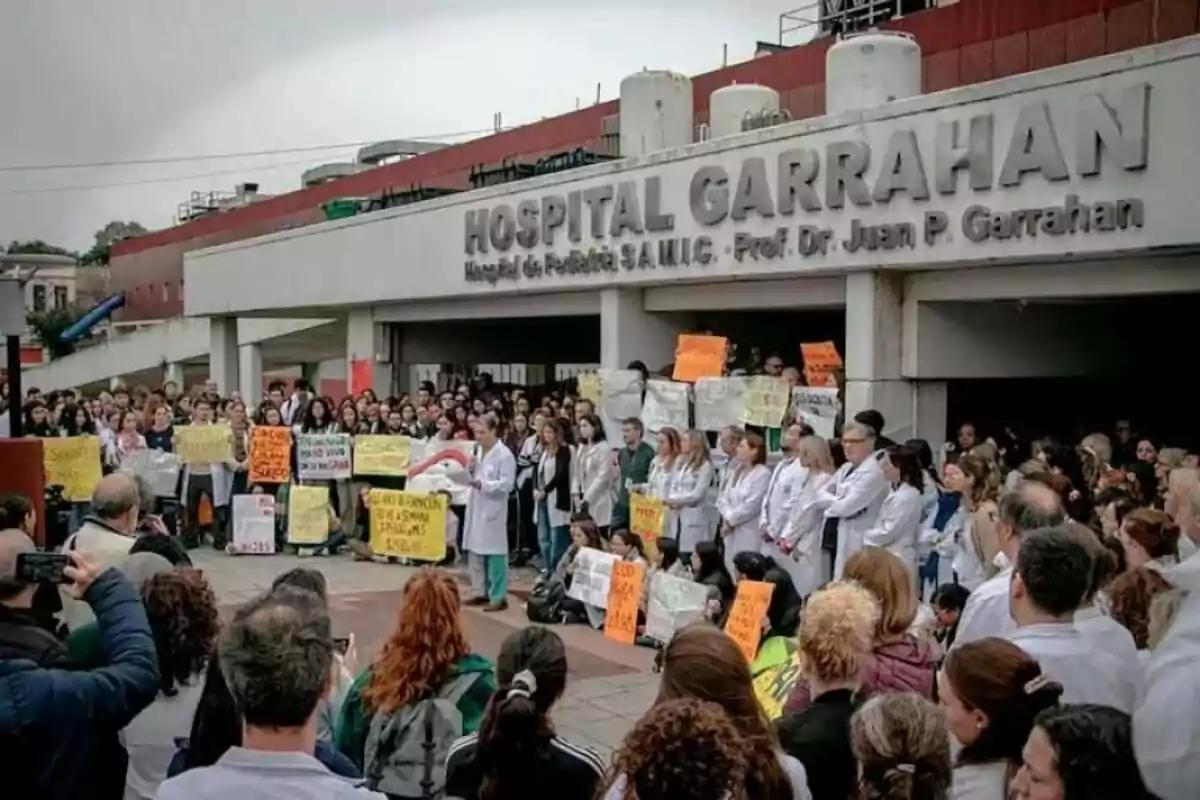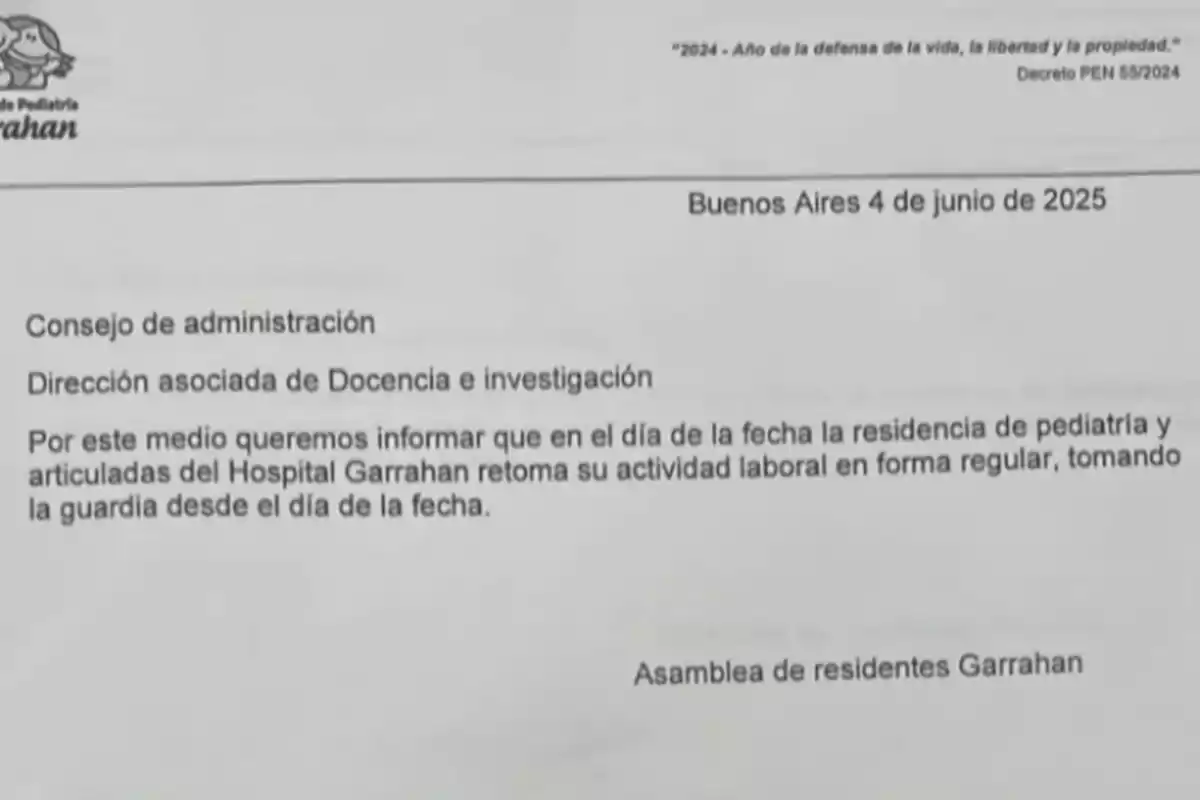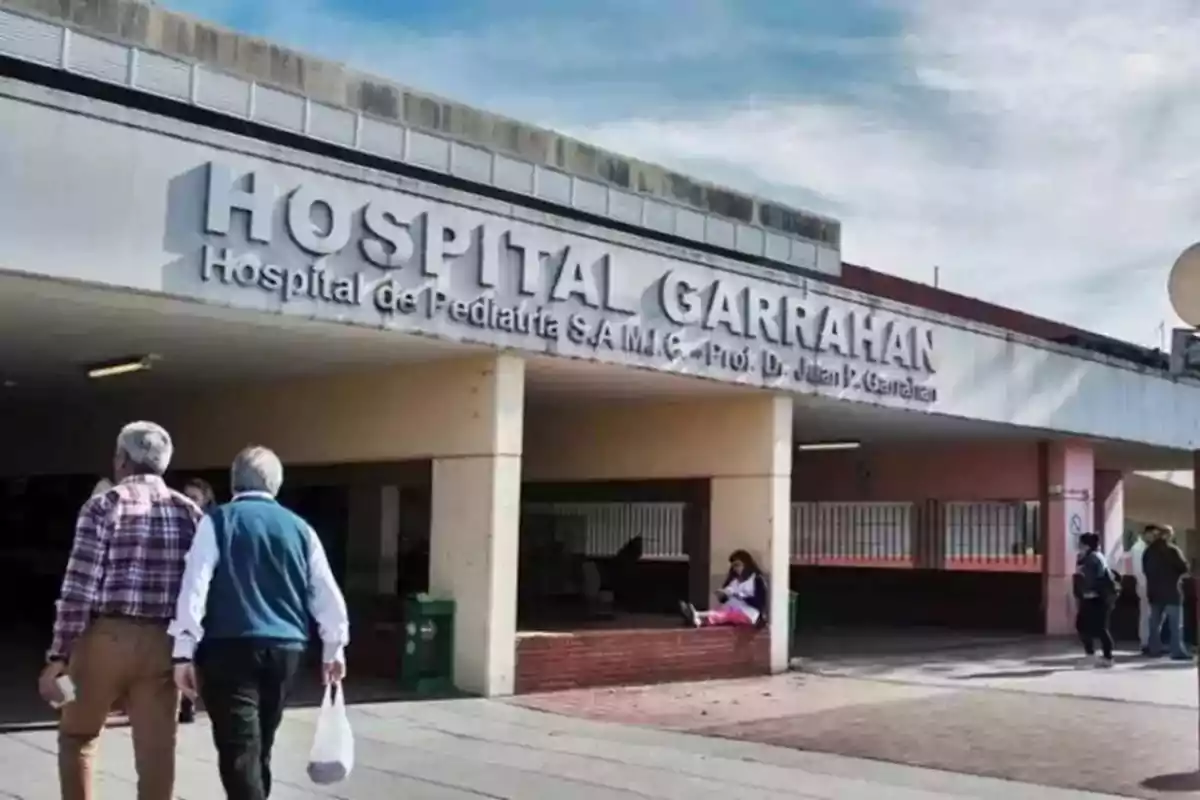
The doctors at Garrahan Hospital have ended the strike and are resuming their work activities.
It was through a note addressed to the Directorate of Teaching and Research and to the hospital's Board of Directors
After 5 p.m., the resident physicians at Prof. Dr. Juan P. Garrahan Pediatric Hospital decided to end the strike they had been holding. The decision was formally communicated through a note addressed to the Directorate of Teaching and Research and the hospital's Board of Administration.
The measure was taken after the authorities ordered them to resume their duties to avoid possible sanctions and to continue discussions regarding their labor demands.
In the document, the representatives of the Residents' Assembly informed the relevant area that "the pediatrics and articulated residency is resuming its regular work activity, taking on-call duty as of today."

The Garrahan conflict
Following a demand from the hospital's physicians, the Government of Javier Milei had decided to carry out an audit within Garrahan to identify Kirchnerist "ñoquis" in order to dismiss them.
With these resource savings, the libertarian administration also announced a 63.12% salary increase for resident physicians at Garrahan Hospital, which will raise their salary from 797,000 pesos ($797,000) net to 1,300,000 pesos ($1,300,000) per month starting July 1.
In this context, however, the measure was rejected by the union and Kirchnerist labor sectors that seek to use the hospital's demands to advance their partisan interests.
The salary update includes a nominal increase of 300,000 pesos ($300,000) as a bonus, rising from 200,000 pesos ($200,000) to 500,000 pesos ($500,000), which represents a significant fiscal effort amid a budget adjustment process that prioritizes efficiency, order, and meritocracy.

During the administrations of Cristina Fernández de Kirchner and later Alberto Fernández, Garrahan's medical staff staged multiple demands for salary and labor improvements. However, during that period, the unions representing the workers, many of them with strong ties to Kirchnerism, remained docile before political power.
They accepted installment-based increases and below-inflation raises, without calling for mass mobilizations, as they do now, leaving physicians alone in the face of a system that silently made their working conditions precarious under the complicity of the unions.
For this reason, Milei's Government decided to move forward with its agenda, raise physicians' salaries, and not allow itself to be extorted by Kirchnerist unions that, far from caring about healthcare professionals, only seek political gain from this situation.
More posts: